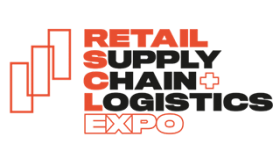Since 1987, Mantair Ltd has been providing trusted, compliant, and environmentally responsible wastewater treatment solutions across the UK.
Five reasons why the public sector still doesn't embrace G-Cloud
Romy Hughes, director at Brightman, outlines some of the reasons why the public sector still shuns the G-Cloud and other frameworks
The G-Cloud, along with the many other framework agreements, were initially developed to keep procurement and suppliers at arm’s length. The aim was to create a level playing field which would stop government projects being awarded to the same large suppliers, again-and-again, irrespective of their performance. In turn, this removal of 'cosy' relationships would allow public/private sector business to be conducted on purely objective terms, delivering better value and a better quality of service to the taxpayer.
But the G-Cloud framework, among many others, continues to see much lower adoption than they should, with many major procurements still bypassing the framework agreements altogether. But why is this? Below are the five most common reasons we hear from our public sector clients when they have chosen not to use a framework.
1. 'It wasn’t built here' – Ultimately, the public sector likes to work with its own systems and people. In some sectors there is still a general mistrust of private companies, or the ideological feeling that profit should never touch the public sector. There is no room for ideology in procurement. Achieving the outcome in the most effective way should be the only ideology to work by. In most instances the private sector has proven itself to be the most efficient, cheapest and effective way to deliver services.
2. 'We have strategic suppliers already' – The framework agreements are seen as artificial barriers to doing business, because that is exactly what they were designed to be. They were put in place to remove existing relationships from the procurement process so that contracts would be awarded on an entirely objective basis. That is fair enough, but it ignores how people actually do business. Ultimately, people want to do business with people, not frameworks. It also presupposes that business relationships built on years of shared experiences have no value in a business transaction, when in reality it is very important. Trust is an important factor in choosing a supplier which cannot be determined in a framework.
3. 'No one likes change' – As reliably as the sun will rise and set each day, you will find that most people will avoid change if they can. Change is uncomfortable, risky, unpredictable. But change is also necessary and inevitable. While most people naturally resist change, they will accept it if they understand why it is necessary. The G-Cloud and other frameworks were not introduced to make life more difficult, but that is often how they are perceived by those in procurement. The government needs to make the case that the change introduced by the frameworks is worth it.
4. 'Each framework is costly to review' – Given the complexity of each framework agreement, no public sector organisation would risk signing up to one without their lawyers reading it first. G-Cloud’s Framework agreement spans 62 pages, while the basic call-off contract is 77 pages long – and this is before any contract-specific terms have been added. Multiply this by each framework that the public sector buyer is expected to use and it is not hard to see why many would simply choose to write their own terms. Why would you invest in legal advice for each and every framework when you can simply pay the same lawyer just once to write terms which address your specific needs?
5. 'How do we know if its genuinely the right approach?' – Building on the last point, each framework must be individually assessed to determine if it offers good value. This is a time-consuming process which many organisations simply don’t want to do, so they leave the frameworks on the shelf. Given the number of frameworks and the government’s propensity to continually introduce new ones or renew existing agreements (why the need to renew G-Cloud each year?) it becomes very difficult for organisations to know if they deliver good value or not.
These five points address the most common reasons why many in the public sector remain reluctant to even consider using a framework agreement in the first place. Yet this article has not addressed the elephant in the room – the poor experience that many buyers have when they actually attempt to use one. The G-Cloud in particular is often criticised for being unwieldy and difficult to navigate, and largely ineffective at matching public sector requests with the most relevant suppliers. Given the 5,224 suppliers on G-Cloud 12 alone, there is a pressing need for the matchmaking capabilities of the platform to be overhauled. Even if we could address the five points raised in this article and convince the public sector to use it, we may find that their poor experience will be another reason to stay away.
We do not disagree with the sentiments of our public sector customers here who have shared their experiences with us, however, these issues are not insurmountable, and the goals of the frameworks remain something to strive for. Ultimately, the frameworks need to be better at efficiently and objectively matching government buyers with appropriate suppliers. We believe this can be better achieved by reducing the overall number of frameworks to simplify the market for buyers, overhauling the online marketplaces (with a particular focus on their matchmaking capabilities) and introducing a sustained communications campaign to educate the public sector on how to get the best out of them. By doing this I believe the frameworks can have a much more positive future.
Event Diary
Retail Supply Chain & Logistics Expo returns to Excel London across 12-13 November, once again bringing together the world of logistics, supply chain, eCommerce and retail innovation for two dynamic days of opportunity.
Every sport, from grassroots football to world-class tournaments, depends on one constant: high-quality playing surfaces and well-maintained green spaces.
Tickets: Free registration available at www.retailscl.com
The Retail Supply Chain & Logistics Expo is the UK’s leading event for retail supply chain and logistics professionals, showcasing the latest innovations in fulfilment, 3PL, AI-driven automation, and warehouse technology.
Supplier Profiles
Bauder Accepts Keys to its New UK Distribution Centre at Gateway 14
Bauder marked a major milestone in its UK expansion with the official handover of a brand
Words of World: Bridging language barriers with excellence
At Words of World, we specialise in professional translation and interpreting, d
Latest Features
The British Institute of Cleaning Science (BICSc) and the Cleaning & Support Services Association (CSSA) have successfully completed a groundbreaking project aimed at exploring the future of cleaning. This collaboration marks a significant milestone in the cleaning industry, reflecting a shared commitment to embracing innovation with confidence.
The Crown Commercial Service’s (CCS) new framework on Language Services (RM6302), dealing with translation, transcription and interpreting, is live, running from 7th May 2025 to 6th May 2028.










